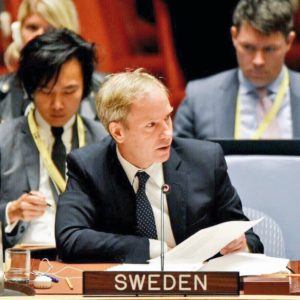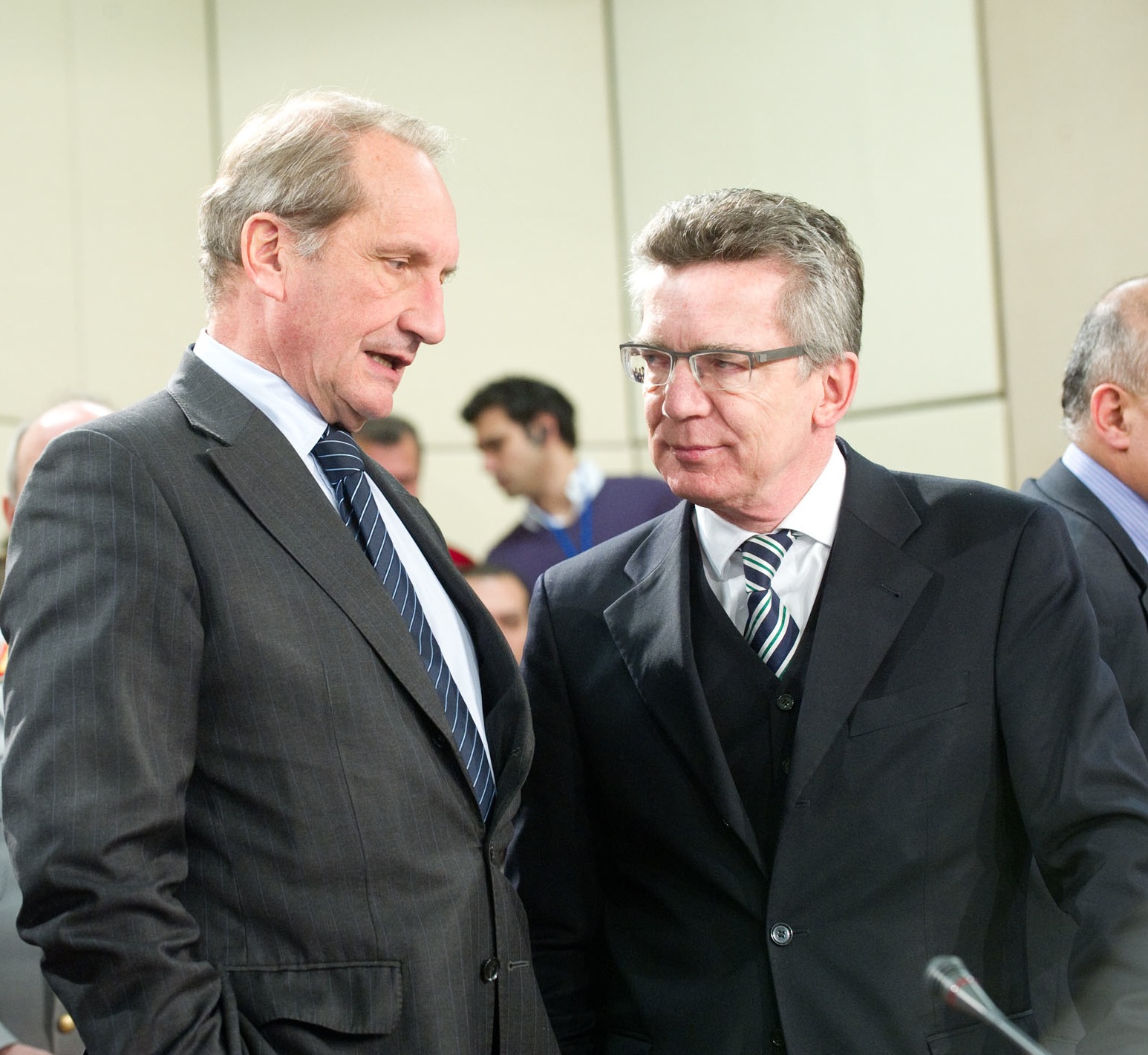Sweden proposes a truce in Syria. A draft resolution submitted to the Security Council

(B2) Members of the United Nations Security Council consider a draft resolution calling for a XNUMX-day ceasefire in Syria to allow for the urgent delivery of humanitarian aid.
"All parties to the Syrian conflict must immediately respect a humanitarian pause and stop all violence across Syria, for a period of thirty consecutive days".
The immediate end of the sieges
This text, presented by Sweden and Kuwait (which holds the presidency of the Security Council in February), obtained by AFP, requires that all parties operating in Syria allow medical evacuations within 48 hours of entry into force of the humanitarian truce and that United Nations aid convoys be allowed to make weekly deliveries to needy civilians. He calls on all parties to "immediately lift sieges from populated areas" and to "stop depriving civilians of food and medicines essential to their survival". He also expresses "outrage at the unacceptable level of violence escalating in several parts of the country", especially in Eastern Ghouta and Idleb
Moscow's position remains unknown
Negotiations on the text should begin on Monday and, according to diplomats, it could quickly be put to the vote of the fifteen members of the Council. But Russia, an ally of President Bashar al-Assad's regime, has repeatedly blocked any Council initiative that would target Damascus. Diplomats said Friday evening (9 February) that Moscow's position on the new draft resolution was unclear at this stage, including whether Russia intends to use its veto power to prevent its passage.
A first attempt on Thursday failed
Despite the scale of the violence in Syria, the fifteen members of the Security Council failed to agree on Thursday on a humanitarian truce demanded by the UN agencies to allow the delivery of emergency aid. Russian UN Ambassador Vassily Nebenzia, among the first representatives to leave the Council meeting, said a humanitarian ceasefire "was not realistic".
A dramatic situation in Syria
After a brief respite, the bombardments targeted Friday several localities in the vast region of Eastern Ghouta, near Damascus and in which some 2013 inhabitants have been besieged since 400.000 in dramatic humanitarian conditions, according to AFP correspondents. Doctors and rescuers are overwhelmed by the influx of victims with dozens of dead and injured every day, including women and children. The bombing campaign carried out by government forces has killed more than 240 civilians in five days (in addition to the more than 340.000 dead in the conflict in almost seven years). Representatives of the various UN agencies based in Damascus had demanded on Tuesday "an immediate cessation of hostilities for at least a month, throughout Syria". They accused the Syrian authorities of blocking since January all convoys of humanitarian assistance destined for the besieged areas.
(AFP selected by NGV)
Sweden on the move
Sweden is one of the five European members of the Security Council. A relatively exceptional situation. In addition to the two permanent members (France, United Kingdom), we find the Netherlands (by virtue of a shared participation with Italy) and Poland (elected from the contingent of Eastern European countries). Olof Skoog, the UN representative, is well known in the European Union. Former ambassador to the Political and Security Committee of the EU (during the Swedish presidency of the EU), he was the first permanent president of this structure between 2010 and 2013 (read: A Swede at the head of the COPS). He is also a diplomat who knows the question of chemical weapons in the Middle East well, having been Hans Blix's political adviser during the time of the international inspections in Iraq.
Barely two days ago, he had condemned the use of the right of veto by the permanent members of the Security Council.
“Using, or rather misusing, the veto to protect narrow national interests against the will of the vast majority of members diminishes the effectiveness and credibility of the Council. It is only when the Security Council meets and works as a whole that we are able to do our job. (Olof Skoog on twitter)
(NGV)
Read also:
- Syria, Ukraine… Between Paris and Moscow, telephone diplomacy
- Syria. Bashar started again. Everything indicates "the use of chlorine by the regime" (Le Drian)



